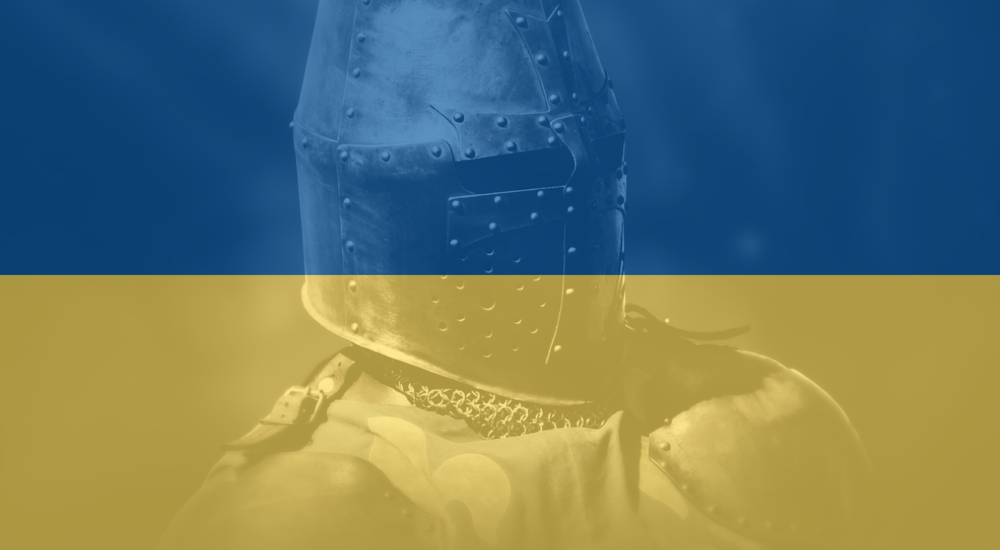Lingamfelter: A Time for Courage, Not Timidity
The time for talk is over. The time for action is upon us as it hasn’t been since the waning of the Cold War. Russia is essentially an economically emaciated remnant of the former Soviet Union. But it remains a significant world power given its robust nuclear weapons arsenal. We were reminded of this when Russia’s maniacal dictator, Vladimir Putin, threatened to use them if any NATO nation intervened to oppose Russian forces after they invaded Ukraine on 24 February. What are our options now?
Eliot A. Cohen, a professor at the Johns Hopkins University School of Advanced International Studies, has given some insight into how we might rationally respond. In his commentary in The Atlantic, “The Strategy That Can Defeat Putin,” Cohen cites three critical pillars that support a winning strategy including (1) a “vigorous and imaginative” military plan to support Ukrainian regular and irregular forces; (2) sanctions that will “hobble the Russian economy”; and (3) the “construction of a militarily powerful European alliance,” essentially strengthening NATO so long as Russia “remains a menace.”
Indeed, the first objective is essential and urgent. But the U.S. and NATO are sending mixed messages on supplying weapons to Ukraine. While they have provided Javelin anti-tank and Stinger anti-aircraft weapons, they have been hesitant to permit the transfer of MIG-29 jets from Poland as somehow “escalatory.” That hesitation reflects a misplaced fear that providing some weapons will provoke WW III given Putin’s nuclear brinksmanship. Yet like it or not, our provision of anti-tank and anti-aircraft weapons—which are devastating—make us de facto participants in this war. Like Caesar, we have crossed that Rubicon. And while we dither over escalation concerns, Russia is unleashing devastating artillery—known as the “King of Battle”—and missile attacks on innocent Ukrainians. Russian artillery must be countered, and the U.S. and NATO have the weapons systems to do just that.
Armed drones can surely help, not only with reconnaissance, but in countering Russian artillery. The U.S. and NATO also have excellent artillery systems that can help even the scorecard now. The British lightweight M119 towed 105mm howitzer, capable of being airlifted by helicopter or para-dropped, can range out to 19 kilometers. Likewise, the U.S. M777 155mm towed howitzer can range 25 to 40 kilometers depending on the ammunition used, all of which is quite effective. Finally, the U.S.-made HIMARS, a truck-mounted lighter version of our lethal Multiple Launch Rocket System (MLRS), can deliver guided and unguided anti-tank rockets up to 42 kilometers and ballistic missiles to 300 kilometers. This system alone would be a nightmare for Russian targets of all types, including tanks. Romania has HIMARS that could be transferred and then backfilled by the U.S.
But providing these excellent weapons will require forward deployed New Equipment Teams (NET) to assist and quickly train soldiers to employ them. Given NATO’s decision not to involve ground troops, the U.S. and NATO should turn to former service members skilled in these systems to constitute forward-deployed NETs operating in states bordering Ukraine. What is needed is the imagination, will, and leadership by the U.S. to accomplish this.
Additionally, the provision of 5G communications systems could give the Ukrainians an advantage in command and control. The Russians use 3 and 4G systems that are failing badly. But equipping the Ukrainians with 5G requires enough mobile cell stations (relays) to make the network resilient while reducing frequency conflicts. It’s a big task and will take time. But doing so now will give the Ukrainians a big advantage in the future to sustain the insurgency operations that are ahead.
In addition to rapid and robust arms supply to Ukraine, Cohen’s suggestion to press sanctions is an obvious one. But this must also include a blunt warning to China. If they attempt to soften the impact on Russia caused by Western sanctions, then we must also clamp down on China. Given supply chain issues, that will be difficult. But if Ukrainians are willing to die for freedom, then the West should be willing to absorb additional economic hardship by punishing Putin’s enablers.
Finally, Putin has given the U.S. and NATO a wakeup call from our post-Cold War slumber. The insurgency wars following 9-11 have made Americans weary of “forever wars.” But unless we are willing to tolerate continued wars, we must once again see events for what they are. Russia now threatens the world order with its naked aggression. It’s time for the U.S. and NATO to retool and reinforce our long-term military forward deployed posture in NATO, particularly in the Baltic States which are next on Putin’s list for “assimilation” into the Russian “Borg.”
When Putin looks across his border with NATO, he needs to see power and resolve looking back. It’s time to let go of timidity and take hold of courage.

